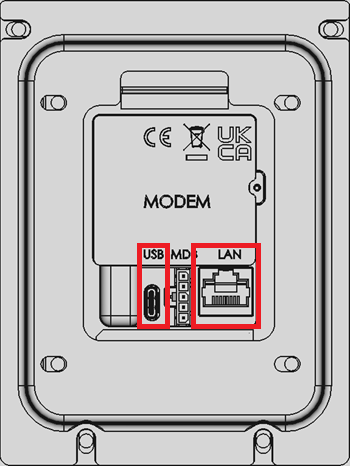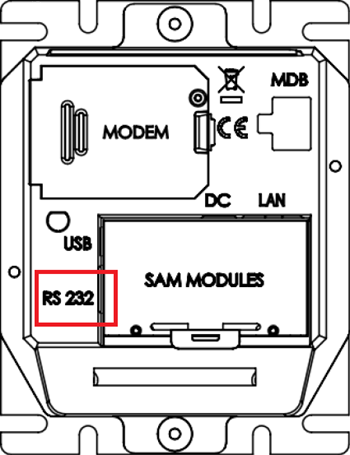Connectivity
Apollo Connectivity
The terminal has a USB-C port that can be used, with a Payter-supplied USB to Serial adapter, to interface with a local controller.
The TCP/IP connection to PSP uses the Ethernet port on the terminal and relies on a Local Area Network to function.
It should be noted that the locking mechanism of USB-C is not as robust as RS232, or the RJ45 Ethernet connection that a TCP/IP connection would use. Payter therefore recommend that Apollo Family terminals use TCP/IP as their chosen connection method.
Serial Settings
The Baudrate for the Serial Connection is configurable, but defaults to 57600. The bit format is:
- 1 start bit
- 8 data bits
- 1 stop bit
TCP/IP Settings
The Apollo terminal has a server side socket running that accepts a connection on its ip address or hostname using the default port 3201. This is a configurable value.
The server socket will close a clients socket after inactivity, see details in the Timeout Recommendations page.
TLS (Transport Layer Security) can be enabled if it is required, but it is typically not needed due to the physical connection security.
Apollo Connection View

P6X Connectivity
The terminal has a RS232 port on the rear that must be used to connect to the controller. Depending on the controller interface, you may need to convert this to a DB9 interface. Payter can provide these cables upon request.
Serial Settings
The Baudrate for the Serial Connection is configurable, but defaults to 57600. The bit format is:
- 1 start bit
- 8 data bits
- 1 stop bit
| LSB | MSB | |||||||||
|---|---|---|---|---|---|---|---|---|---|---|
| Start | 0 | 1 | 2 | 3 | 4 | 5 | 6 | 7 | 8 | Stop |
P6X Connection View
